چاقی، تغذیه و رژیم غذایی | صفحه 12 از 16 | بوک باز
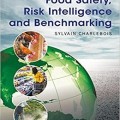
دانلود کتاب ایمنی مواد غذایی، آگاهی خطر و تعیین معیار
Food Safety, Risk Intelligence and Benchmarking, 1ed
This book comprehensively argues for more future benchmarking between nations. Since the initial food safety benchmarking report was published in 2008, the sharing of…
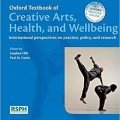
دانلود کتاب هنرهای خلاق، سلامت و تندرستی آکسفورد
Oxford Textbook of Creative Arts, Health, and Wellbeing, 1ed
There is growing interest internationally in the contributions which the creative arts can make to wellbeing and health in both healthcare and community settings.…
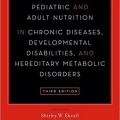
دانلود کتاب تغذیه کودکان و بزرگسالان در بیماری های مزمن، ناتوانی های رشدی و اختلالات متابولیک ارثی: پیشگیری، سنجش و درمان
Pediatric and Adult Nutrition in Chronic Diseases, Developmental Disabilities, and Hereditary Metabolic Disorders: Prevention, Assessment, and Treatment, 3ed
"Packed with information that is useful on a daily basis. This book will be useful for all who care for children with disabilities or…

دانلود کتاب غذاهای کاربردی، افزودنی بیولوژیکی فعال و محصولات طبیعی
Functional Foods, Nutraceuticals and Natural Products, 1ed
Bioactive ingredients in foods and their pharmacological and health effects. Functional foods and bioactives of microbial, plant and animal origin, including probiotics, herbs, spices,…
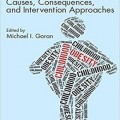
دانلود کتاب چاقی دوران کودکی: علل، پیامد و روش های مداخله
Childhood Obesity: Causes, Consequences, and Intervention Approaches, 1ed
Childhood obesity has reached epidemic proportions in the United States and continues to increase in prevalence in almost all countries in which it has…
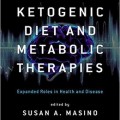
دانلود کتاب رژیم غذایی کتوژنیک و متابولیک درمانی: گسترش نقش در سلامت و بیماری
Ketogenic Diet and Metabolic Therapies: Expanded Roles in Health and Disease, 1ed
Ketogenic diets have been used to successfully treat epilepsy and stop seizures for nearly a century. When more traditional therapies, such as pharmacology, reach…
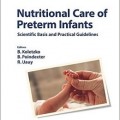
دانلود کتاب مراقبت تغذیه ای نوزادان نارس
Nutritional Care of Preterm Infants, 1ed
Improved conditions of care for premature infants have led to markedly increased survival rates over the last few decades, particularly in very low and…

دانلود کتاب ایجاد مفهوم مایعات و الکترولیت ها
Making Sense of Fluids and Electrolytes, 1ed
Interpreting the fluid requirements of a patient and working out what to do next can seem like a daunting task for the non-specialist, yet…
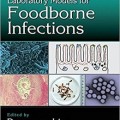
دانلود کتاب مدلهای آزمایشگاهی برای عفونت منتقله از غذا
Laboratory Models for Foodborne Infections, 1ed
Resulting from ingestion of inappropriately prepared or stored foods containing pathogenic viruses, bacteria, fungi and parasites, foodborne infections have become a significant source of…
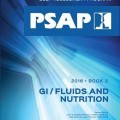
دانلود کتاب مایعات دستگاه گوارش و تغذیه PSAP 2016
PSAP 2016 Book 2 GI/Fluids and Nutrition, 1ed
The next release in ACCP’s popular Pharmacotherapy Self-Assessment Program focuses on evidence-based practice considerations on the management of several important gastroenterologic disease considerations and…
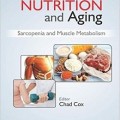
دانلود کتاب تغذیه و پیری: کم ماهیچگی و متابولیسم عضله
Clinical Nutrition and Aging: Sarcopenia and Muscle Metabolism, 1ed
Sarcopenia―the loss of muscle mass and strength that occurs with advancing age―is a major health challenge, particularly in North America, Europe, and Japan, which…






